Foundation of Sports Nutrition for Runners
By: Sarah Schlichter, MPH, RDN, Charm City Run Nutrition Program Coach
When starting out as a new runner (welcome to your new favorite hobby!), there are so many things to think about. “What shoes should I buy?” “Where do I fit running into my schedule?” “Do I need a GPS watch?” “What do I eat?”
Among the many things to consider, nutrition is one of the most important aspects to focus on when incorporating more exercise and mileage. Conflicting nutrition messages emerging in the media can make it very challenging to figure out what you should be doing to fuel your body without underfueling or overfueling.
Below are 4 key evidence based tips for new runners to help keep you focused and energized throughout your training.
1. Eat the right amount of macronutrients.
You may have heard the term macronutrients as the diet trend “count your macros.” Although you don’t need to track or count every single thing that is going into your body, it’s still important to be aware of what you’re eating to get the right amount of each macronutrient to help fuel your training.
Macronutrients are classified as carbohydrates, protein, and fat. As a runner your primary focus is going to be on carbohydrates. Carbs are the body's main energy source. When you eat carbohydrates, they get stored in your muscle and liver as glycogen to be used for energy when running. It’s important to keep these glycogen stores from being depleted so you can stay energized throughout your training.
To ensure you’re getting enough, aim to have 45-65% of your calories from carbohydrates. This looks like filling ⅓-½ of your plate with carbohydrates at meal times and including them in your snacks throughout the day.
In order to recover properly from a workout or run, you also need to get adequate amounts of protein. Aiming to get 20%-35% of your calories from protein will help rebuild your muscles and promote recovery. Including a protein source with each meal and snack should help you hit this goal.
Lastly, fat is needed to provide sustained energy and to help protect your joints. Aim for 10-30% of your daily calories from fat. Meeting your fat intake can be easy by topping dishes with “healthy fats” like avocados, nuts, olive oils, and seeds.
Those are great ranges to start with! Balancing these macronutrients will help to keep you strong and sustained throughout your training and help improve recovery.
Credit: U.S. Olympic Committee
Credit: US Olympic Committee
2. Stay hydrated
Hydration status can make a profound impact on a run. You can do everything correctly from a macronutrient standpoint but if you aren’t hydrated, your training (and health) will suffer. During a run, fluid is lost through the skin as sweat (helping to regulate body temperature), and is lost through our lungs when we breathe.
Running in hot and humid conditions increases the amount of water that you need as an athlete. The general rule of thumb is to aim for half of your body weight in ounces to meet your basic needs, but it's crucial to include more water as exercise duration and intensity is increased.
One great way to help determine hydration status is by assessing urine color. A light lemonade color suggests you are likely hydrated. If you find that you have a white residue on your clothes or face after a workout or you’re prone to cramping, sodium intake may need to be increased to help you stay hydrated during a run.
3. Eat a pre workout snack
In order to remain fueled and focused during your run, it’s important to include a pre workout snack. Have you ever gone out on a run and felt fatigued? Had heavy legs? Or felt sluggish? If your answer is yes, your body is likely telling you it needs more nutrition.
The purpose of a pre-workout snack is to top off glycogen stores, and it’s a great way to help meet our overall nutrition needs for the day. When selecting a snack, you want to focus mostly on carbohydrates and reduce protein, fat, and fiber to help avoid any GI upset. Having around 30g of carbohydrates 30 minutes to one hour prior to a run will give you that extra boost of energy to get through your workout.
Some easy pre workout snacks include:
Banana with a small amount of peanut butter
Nature’s made fig bars
Glass of juice
Honey Stinger chews
4. Recover with a post workout snack.
Lastly, we need to focus on the 3 R’s of recovery: Refuel, Rebuild and Rehydrate. Contrary to popular belief, you are not done with your workout once you stop running. Instead, you are done with your workout once you have had your post recovery snack.
This snack should focus on a ratio of 3:1 of carbohydrates to protein. For example, if your snack has 30g of carbohydrates you want to pair it with 10g of protein. This combination helps to replenish the glycogen stores in your muscles while helping to repair muscle damage done during the workout.
Some great post workout snack ideas include:
Chocolate Milk
Greek yogurt with fruit
Turkey Pita with an Apple
Peanut butter and jelly sandwich
A common question I always get is when to have the post workout snack. While time ranges vary considering on who you ask as well as your training goals and future training, I always recommend the sooner you can start your recovery nutrition the better.
If you’ve only done a short run or workout, you may choose to skip the pre or post workout snack, depending on the intensity and your goals. This is where working with a dietitian can be helpful to form an individual nutrition plan!
Adding these nutrition tips into your training regimen can help improve energy levels, performance, and recovery. It is a lot to focus on all at once, so take one tip you want to start with and slowly try to incorporate it, rather than aiming for all four at once.
Nutrition is very individualized. If you have any questions related to your individual needs, work 1-1 with a sports dietitian to help you fuel your training.




